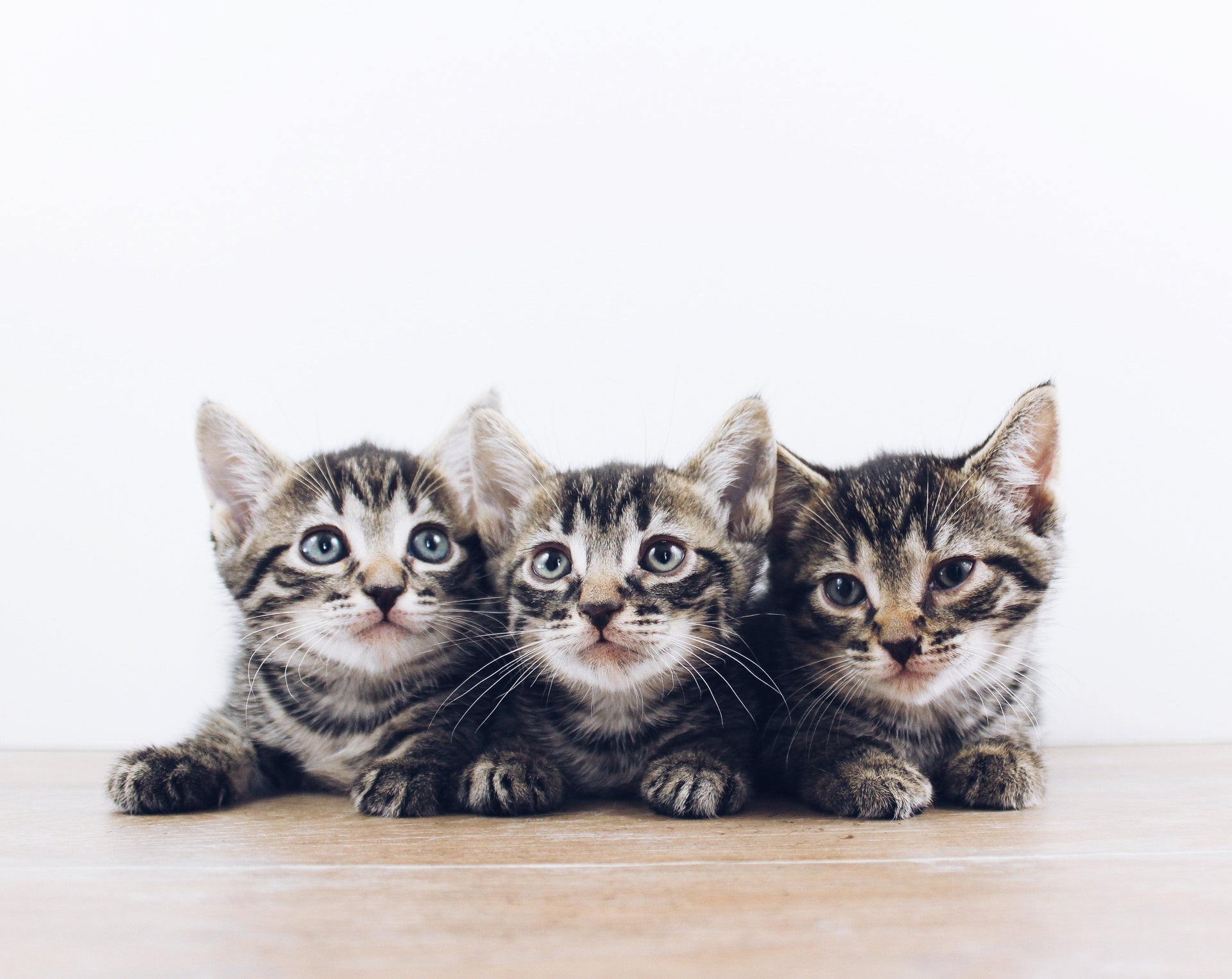5 Ways to Boost Your Kitten’s Immune System
December 29, 2022

To take care of your own health, you likely do a lot of things, or at least try to. This could range from eating a healthy diet to ensuring you get enough sleep each night. Every healthy step you take helps keep your immune system strong so it can fight off pathogens.
But what can you do to ensure your kitten's immune system fights off bad bacteria and viruses?
Your kitten depends on you fully to ensure their health is as good as possible. It's up to us, as pet parents, to keep them healthy and boost their immune systems as much as possible. There are, however, things you can do to help your kitten's immune system work well.
Now, why is this so important? Cats and kittens with stronger immune systems are less likely to get sick, recover faster when they do get sick, and be more active throughout their lifetime. Not only will your cat live longer and be healthier, but caring for their immune system early in life will save you money on veterinary bills later on.
→Highly Recommended: The veterinary-recommended supplement proven to help support your kitten’s immune system←
How the Immune System Works
The immune system is a complex network of cells and organs that work together to protect the body from foreign organisms. The immune system helps to keep us healthy by destroying harmful microorganisms like viruses, bacteria, and parasites.
The immune system is made up of three components:
-
Lymphatic system: The lymphatic system is a network of vessels and nodes that transport fluid (called lymph) containing immune cells throughout the body. Lymph fluid drains into the lymph nodes where pathogens can be trapped and destroyed by white blood cells.
-
Blood: Blood contains white blood cells that fight infection directly. Blood also carries antibodies that recognize specific antigens (foreign proteins on bacteria, viruses, and other invaders). Antibodies can lock onto these antigens and destroy them before they infect the body.
- Skin: Skin acts as a barrier between our bodies and the world around us, preventing pathogens from entering our bodies through our skin or mucous membranes such as our mouth or nose.
Your Kitten’s Immune System Development
Kittens are born with an immature immune system, so they need support to be protected from infections.
Kittens are considered “immunocompromised” because they don’t have a fully developed immune system until around 6 months of age. This means that the kitten may not be able to fight off infections as effectively as an adult cat and is more at risk of developing certain diseases.
The immune system protects against disease-causing microorganisms such as bacteria, viruses, and fungi. It does this by producing antibodies and white blood cells (the immune cells responsible for fighting these infections).
The kitten needs to be exposed to potential pathogens (organisms that cause disease) and given enough time for its body to make enough antibodies and white blood cells to fight off these infections.
The most important thing you can do as a new owner is prevent your kitten from catching any infectious diseases in the first place. This can be achieved by keeping them indoors, away from other animals that might carry diseases such as cat flu or feline immunodeficiency virus (FIV).
→Highly Recommended: The veterinary-recommended kitten probiotic proven to help boost the developing kitten’s immune system←
Boosting Your Kitten’s Immune System
Since kittens are particularly susceptible to illness, it's important to focus on strengthening the immune system they are building.
Here are 5 ways this can be accomplished:
1) Choose the Best FoodThe first step in making your kitten's immune system stronger is to make sure they eat a healthy, well-balanced diet. The diet should also be formulated specifically for kittens rather than adult cats.
Like most other foods in the world today, not all pet foods are created equal. In fact, there are a lot of fillers, by-products, synthetic vitamins and minerals, and preservatives in a lot of foods.
If your kitten is fed a low-quality diet without variety, this could result in nutritional gaps. Nutritional gaps lead to a lack of essential ingredients for growth and well-being.
Look for a food that's nutrient-dense and rich in vitamins, minerals, and antioxidants. If you're choosing to feed commercial kibble or wet food, take a look at the ingredients label. The first ingredient listed should be meat of some sort.
With the right diet, your kitten's food can strengthen their immune system.
2) Exercise Your Kitten
Kittens tend to be playful and energetic, which makes this one fairly simple. Exercise. Not only does exercise keep your kitten entertained, but it also strengthens immunity and reduces stress.
Although they don't seem immediately correlated, stress has a huge impact on your kitten's immune system. Exercise also helps your kitten build a stronger body as they mature into an adult cat and prevents them from becoming overweight.
3) Keep Stress at a Minimum
Like us, our kitten's immune system can be hurt by being in a constantly stressful environment. An environment with excessive stimulation can keep your kitten's mind in fight-or-flight mode, leading to health conditions.
A peaceful environment keeps your kitten at ease, giving them the ability to sleep comfortably and wander around feeling safe. A sufficient amount of sleep and relaxation can boost your kitten's immune system.
4) Keep the Air CleanGood air quality is important for your kitten's immune system, as well as its overall health. If you're not able to get your home tested for allergens, take these steps to improve the air quality in your home:
- Remove any sources of allergens from the house. Although cats can develop allergies to many things, the most common culprits are dust mites, mold spores, and pollen.
- Vacuum regularly (at least once a week). This will help remove dust mites and waste products from carpets and furniture. Use a HEPA vacuum if possible; it removes up to 99% of particles in the air compared with non-HEPA vacuums that remove only 30%.
- Keep your cat's litter box clean. Kitty waste contains proteins that attract microscopic mites that live on feces and trigger allergic reactions in some people and animals (including cats). As a result, it's important to wash kitty litter boxes regularly with hot soapy water or dilute bleach solution (1 cup bleach per gallon of water), then let them air dry before replacing them on surfaces where other pets might come into contact with it—especially those who are sensitive or predisposed toward developing allergies themselves.
Did you know your kitten's gut microbiome has an immediate impact on their immune health? Unfortunately, the kitten’s digestive tract bacteria can easily become imbalanced by stress, antibiotics, diet, and environmental stressors.
These imbalances can result in digestive problems like flatulence and diarrhea. And, could cause your kitten's immune system to be less effective in fighting off pathogens.
Probiotics, like Daily Cat, can introduce beneficial bacteria back into the gut microbiome and get it back to balance. Probiotics make it easier for nutrients to be absorbed, improve digestion, and boost the immune system, all of which lead to better overall health.
Just feeding a half scoop per day of Saccharomyces boulardii can significantly improve and protect your kitten’s health. Try yours today and get your kitten’s GI tract set up for lifelong success!
Read More:
Immune System Responses in Cats
Microbiota and Probiotics in Canine and Feline Welfare
The Effects of Nutrition on the Gastrointestinal Microbiome of Cats and Dogs
Photo by The Lucky Neko on Unsplash

